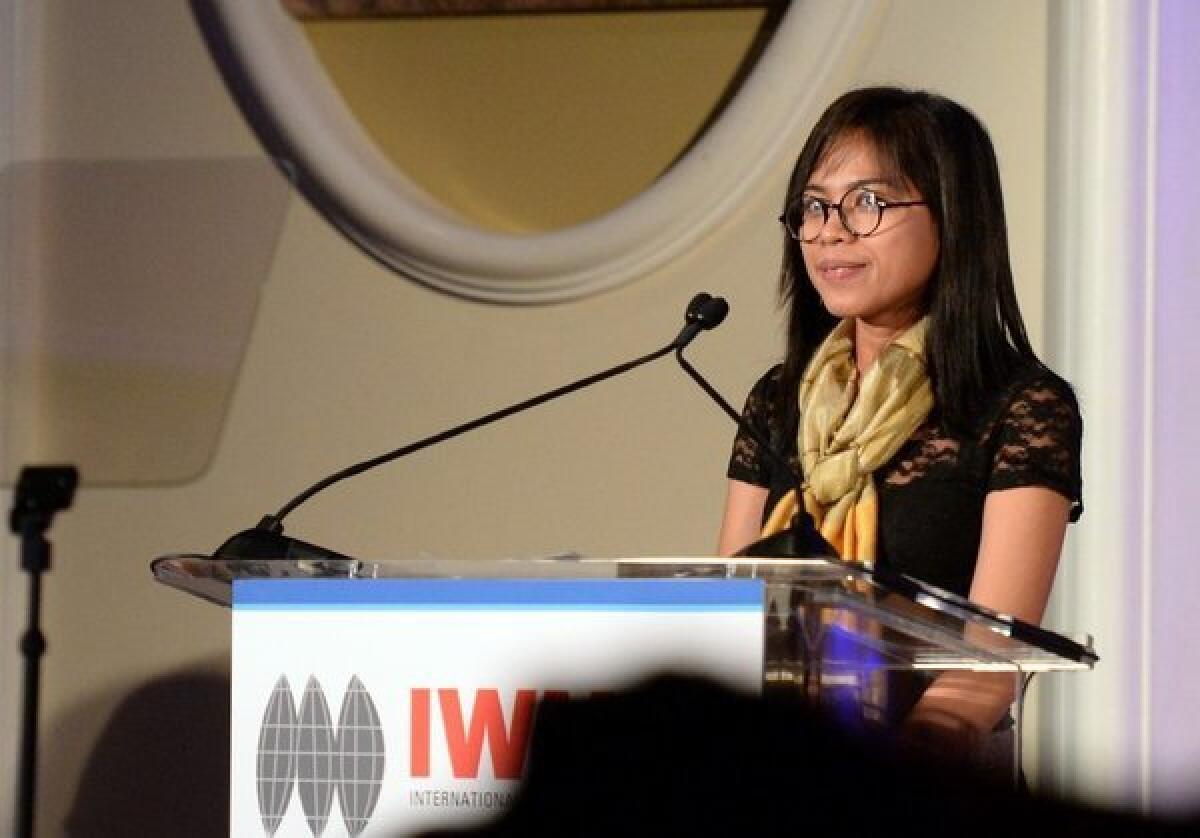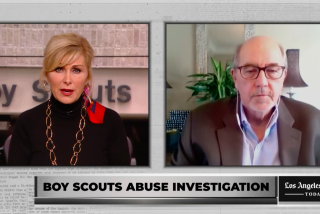Women warriors on journalism’s front lines

I came out of the hotel, out of this Tuesday evening awards event, feeling wonderful — and terrible.
Wonderful because the heroic work being done by the women journalists who’d been honored by the International Women’s Media Foundation is powerful and influential, and it leaves me agog.
Terrible because of what these women have had to go through to do their work: death threats, political pressure, slander, family pressure. Next to them, I’m ashamed to admit that hardships for many American-based journalists often amount to nothing more than a drained coffee pot, an obscene email or getting the smoke out of the clothes you wore to cover a brush fire. The clothes these women wear may have shrapnel or bullet holes.
PHOTO ESSAY: Five women more newsworthy than Miley Cyrus
One of them, Nour Kelze, a Syrian schoolteacher turned Reuters photographer, could not be there for the awards on Tuesday evening — “trapped” in Syria, is the way the presenter described it. On the video she made for her acceptance, we saw her working through blasted cityscapes, the camera in her hand making her a particular target. We saw her colleague, a man as close “as a brother,” being shot dead pulling a wounded man to safety.
Witnessing for the world through a camera lens is what she must do: “I’m not giving up, even if I have to die.” Syrian women, she said, have been killed as they stood at the sink washing dishes, so “why should I die cheaply?”
Would all of us, would any of us, say the same thing of our work?
Afghani journalist Najiba Ayubi, who heads the Killid Group and cofounded the Afghan Independent Media Consortium, has been told in a hundred different ways — by phone, social media, in person — to knock it off, to stop reporting and broadcasting on dysfunction and corruption in Afghanistan. Her family has been threatened; she has been threatened. The first lie she ever told in her life, she said at the ceremony, was when gunmen showed up at her door and asked, “Is Najiba Ayubi at home?” On the other side of the door, she fibbed, “She’s not here.”
Bopha Phorn is a young investigative reporter for the Cambodia Daily, and her stories about environmental crimes and human rights abuses have made her plenty of enemies. She was looking into a story on illegal logging when gunmen shot up her car, killing the activist inside with her. Phorn told the crowd in the Beverly Hills Hotel ballroom, where she was introduced by actress Bo Derek, that she was “not interested in entertainment journalism” though she acknowledged how hard the path is that she’s chosen. But “if we quit on the job” because of the risks of the job, who would step in to look out for Cambodia’s powerless?
[As for entertainment, the event takeaway for several gossip blogs was a supposed “baby bump” — what a smarmy phrase that is — on actress Olivia Wilde, a co-emcee who, as it turns out, was born into the renowned Cockburn family of journalists.]
The IWMF’s lifetime achievement award went to Edna Machirori, the first black woman editor of a newspaper in Zimbabwe, where her stories on corruption brought down upon her too the wrath of her subjects, among them Zimbabwe’s president, Robert Mugabe.
Her journalism “lifetime” is around 50 years, from the day she began as a 19-year-old, and, she said, “I’m as enthusiastic about the profession as I was when I was a teenager.”
This is the 20th year for the Courage in Journalism awards. You can track the world’s conflicts and civil rights disasters through the home countries of some of the winners: Haiti, Ukraine, Tibet, Mexico, Iran, Lebanon, Sudan, Pakistan, Myanmar, Iraq, China.
The guests I talked to left as I did, inspired and chastened — and grateful. We have a 1st Amendment, and all of us get so used to its scope, its protections, that we tend to forget how hard to come by, and how dearly bought, real journalism is in the rest of the world.
ALSO:
There’s no reason or excuse for blackface Halloween costumes
Follow Patt Morrison on Twitter @pattmlatimes
More to Read
A cure for the common opinion
Get thought-provoking perspectives with our weekly newsletter.
You may occasionally receive promotional content from the Los Angeles Times.











